Lead ImageCourtesy of Jenny Lau
To say that Jenny Lau’s debut book is about only Chinese food would be reductive. Billed as an “essential anti-glossary”, An A-Z of Chinese Food: (Recipes Not Included) uses food as a jumping-off point to explore Chinese culture, identity and history, illustrating how we use food to understand – and so often misunderstand – one other. Under chapters like A is for Authentic, E is for Exotic and U is for Umami, Lau delves into a plethora of topics and themes, exploring the racism that erupted following the outbreak of Covid-19, the Tiktokification of tofu, the aesthetic origins of Chinatowns around the world, the perils of Pan-Asian cuisine, misconceptions around MSG, and much more.
Written with an intoxicating blend of wit and playfulness, standout chapters include R is for Rice Cooker – a fictional diary written from the perspective of a family rice cooker, as it witnesses the breakdown of a marriage – W is for WhatsApp – a riff on the ubiquity of WhatsApp group chats in Chinese families, mixed with a migration tale set in 1881 against the backdrop of the Chinese Exclusion Act in the US – and an ethnography of McDonald’s in Hong Kong during the 90s – M is for McDonald’s – dissecting what the fast food chain’s popularity said about changing attitudes around class and consumerism in the region.
Lau moved from Hong Kong to London at the age of 11. After feeling estranged from her Cantonese diet and heritage while living an “increasingly homogenous, white life” in the UK, later in life she embarked on a journey to cook and learn about more Chinese food. ”A transnational Chinese woman operating in a white Western world, I felt desaturated of almost every semblance of my mixed Chinese heritage, save for my skin colour and obsidian-coloured hair,” Lau writes. ”Hungering to satiate myself with something fundamental, I revisited the food of my childhood in Hong Kong.” Later, in 2018, she founded Celestial Peach, a popular Instagram account dedicated to storytelling around the Chinese diaspora; she then began throwing wildly popular potlucks and supper clubs at the ESEA (East and Southeast Asian) Community Centre in Hackney, an experience which deepened her dedication to the notion of community – a central tenet in all of her work. ”Like the medicinal Chinese tonic broths of yore, community was a powerful remedy for my malady,” she writes.
As far as the ‘food writing’ genre goes, An A-Z of Chinese Food is wholly unique for its brazen originality, humour and range. Throwing a mix of personal, historical, critical and satirical writing – with the occasional segue of fiction – into one book is a bold move, but Lau has the deftness and intellect to pull it off seamlessly, making complex topics accessible (although, she tells me, this book was written primarily for a “diasporic audience who can connect with what I’m saying”). Diaspora aside, this is a book for food culture nerds who want to learn more about the nuances of Chinese and East Asian food and culture more broadly, and laugh along the way.
Below, Jenny Lau speaks about Chinese-ness, language, and avoiding tropes and cliches in the food writing genre to create something wholly original.
Violet Conroy: How did you first become interested in exploring food and how it relates to identity?
Jenny Lau: I came to Chinese food – the food of my heritage – quite late in life, in my early thirties. I’d grown up in Hong Kong eating beautiful home-cooked Cantonese food but I hadn’t thought anything of it. When I moved to London with my mum at the age of 11, that’s when I switched to this very British diet without realising it.
Throughout my life, I lived this increasingly homogenous white life. But every year when I went back to Hong Kong to visit my dad, I just felt great. I felt like I needed to return to what that feeling was, so I embarked on this self-study through food. At first, it was just about learning to cook Chinese food for myself, not just Cantonese, but also regional Chinese cuisines. At the same time, I was going plant-based in my diet, so I used Chinese ingredients as a tool to explore that. Very quickly it became so much more than about the food itself – it became this way for me to connect with other people. I then started Celestial Peach as this platform to help me connect with people, which made me realise how important food is to the diaspora. It can be nothing, it can be everything.
VC: In your own words, how would you describe An A-Z of Chinese Food: (Recipes Not Included)?
JL: The book is essentially about the ways in which we use food – especially as diaspora, transnationals or POC – to present ourselves on a plate, to commodify ourselves. We use food to ingratiate ourselves and to assimilate into society, but food is ultimately also weaponised against us and it can be used to other us and to fetishise and exoticise us and our identities, so it’s this double-edged sword.
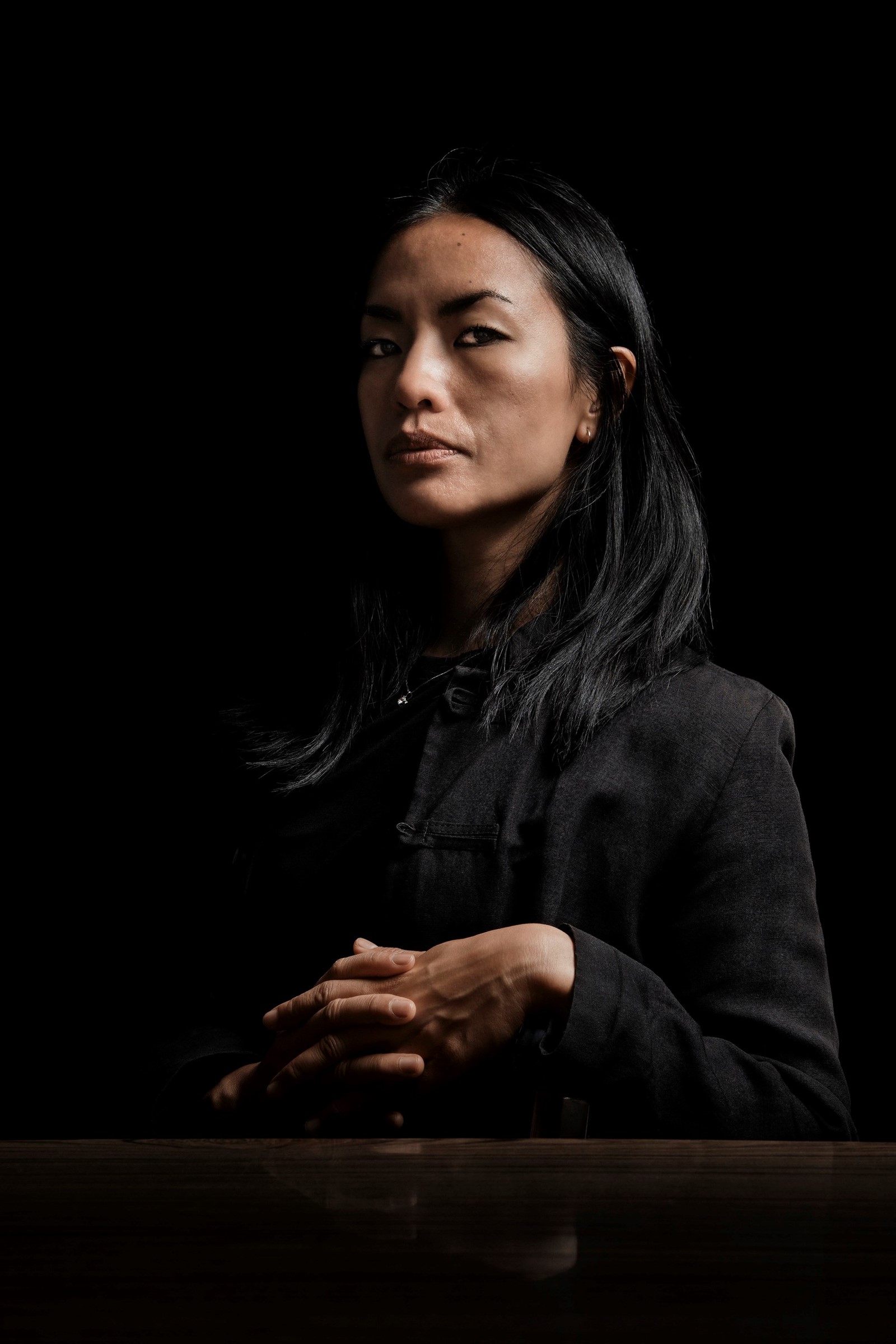
“We use food to ingratiate ourselves and to assimilate into society, but food is ultimately also weaponised against us” – Jenny Lau
VC: In the preface, you write about eating Chinese food as a path of heritage affirmation and identity healing. What was that journey like?
JL: At the beginning, I was sort of naive, as all fresh converts are. I thought, if I eat more Chinese, I will become more Chinese. At the end of the book, I realised that it’s not really about what you eat. It’s much more complex than that. It’s about how you eat, and I found the answer in community and in learning how to be with others, which in turn, showed me that all along, I was Chinese enough.
VC: So much of the book is about language, and how it is wielded and misused. Are you interested in linguistics?
JL: It’s interesting as a way to understand Chinese-ness. It’s about the conversations that arise when we argue about linguistics, about language, about naming things, and it shows you what people are really attached to. They are attached to things like nationhood, ethnicity and borders. People are very territorial about language.
VC: What were some of the most interesting or surprising chapters you wrote?
JL: The rice cooker chapter was really fun to write. People are so attached to their rice cookers because they are this unthanked member of the family. If you have an old-school rice cooker, it often stays in the family for 25 years. Rice cookers hold so much more than just rice and water – they hold all these memories and symbolism, so that was the inspiration for that chapter. Just imagine what this kit appliance hears, experiences and sees as it grows up with a family.
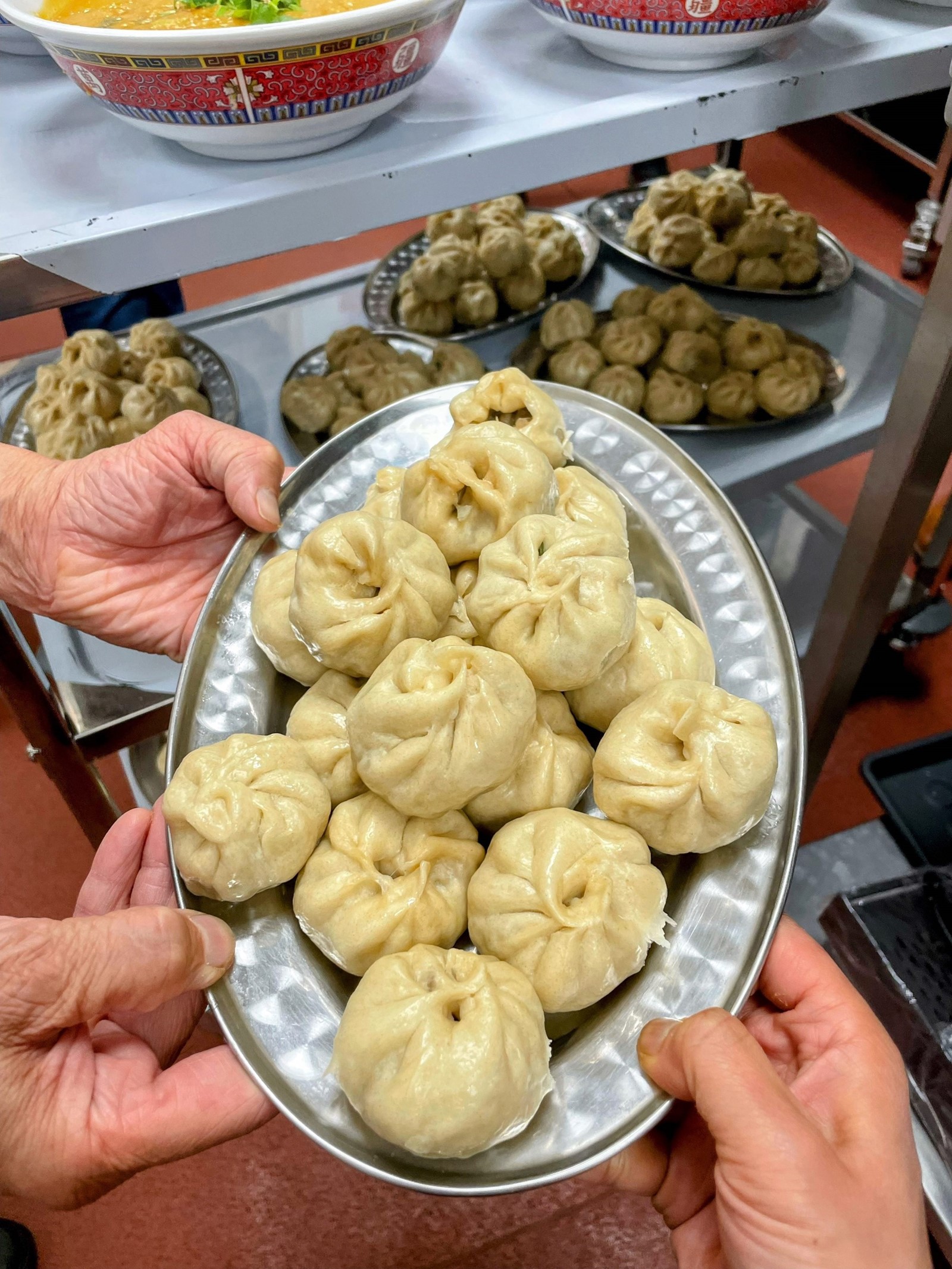
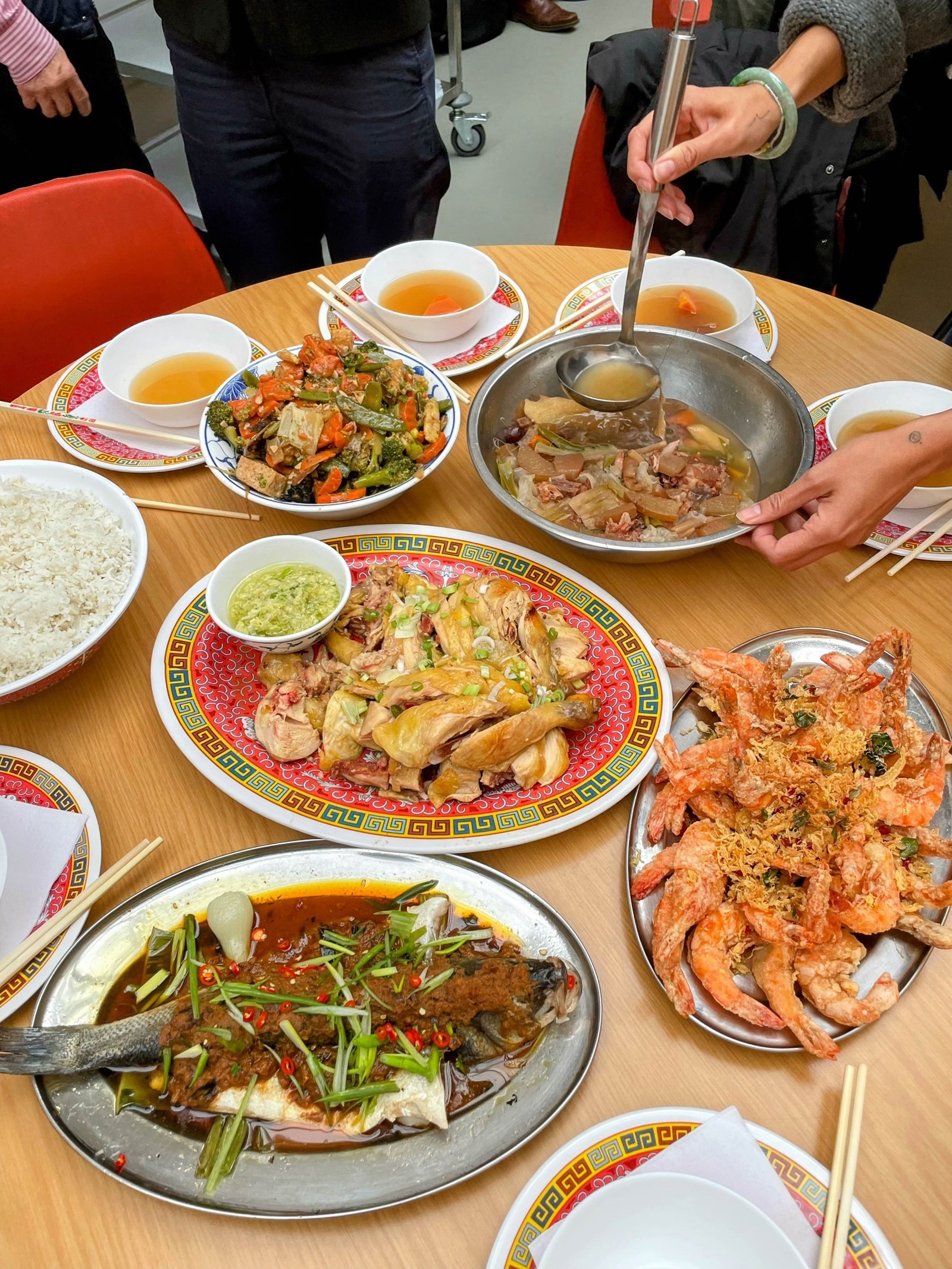
VC: And tell me about the WhatsApp chapter.
JL: Every Chinese person I know is in a zillion family WhatsApps. That chapter is a play on these tropes that exist within Chinese nuclear families where you’ll have the dad who is stoic, silent, doesn’t emote, sends a lot of thumbs-up emojis or the wrong emojis. The stereotype of the Chinese mother is often that she is quite neurotic, she shows love through over-feeding, gives unsolicited advice about traditional Chinese medicine and asks if you have a girlfriend yet.
A lot of the WhatsApp chat is, “What are you eating? Are you eating enough?” I’m generalising, but a lot of the emotional intimacy of emotionally connected Western families is that they’re able to emote in person, whereas Chinese families don’t do that. We don’t do emotions in person. And so I find that a lot of the emotions get transferred into WhatsApp messages. What your mother really means is, “I care about you, I love you, I hope you’re okay.” A lot of that is to do with food.
VC: Are there any writers or books that have particularly inspired your own writing?
JL: Cathy Park Hong’s Minor Feelings was a really crucial read for me. I also remember reading Trick Mirror by Jia Tolentino many years ago and thinking, damn, you can make a book out of essays. Michael W Twitty writes about personal and collective identity in a really compelling way. I never thought my story was particularly interesting so I’ve always wanted to find ways to use myself as an example to connect with other people’s stories.
VC: You’ve said previously that you don’t like the trend for personal, emotional food writing. Why not?
JL: Perhaps it’s because I read a lot of it, and then a few years ago it was going too much in that direction. Everything was all about “my mother and my grandmother’s dumplings”, which is fine if you like that kind of writing. I think there’s a tendency to assume people are more interested in personal stories than they really are. Now there is this expectation that writers of colour, especially food writers, only have this [specific] story to tell which balances personal trauma and heritage. There’s always this beautiful narrative of struggle, which ends in assimilation. But it’s always messier than that. That’s why I want to push against trope.
“I can’t stand mainstream media. I can’t stand cookbooks. Sorry, but most cookbooks are really dull” – Jenny Lau
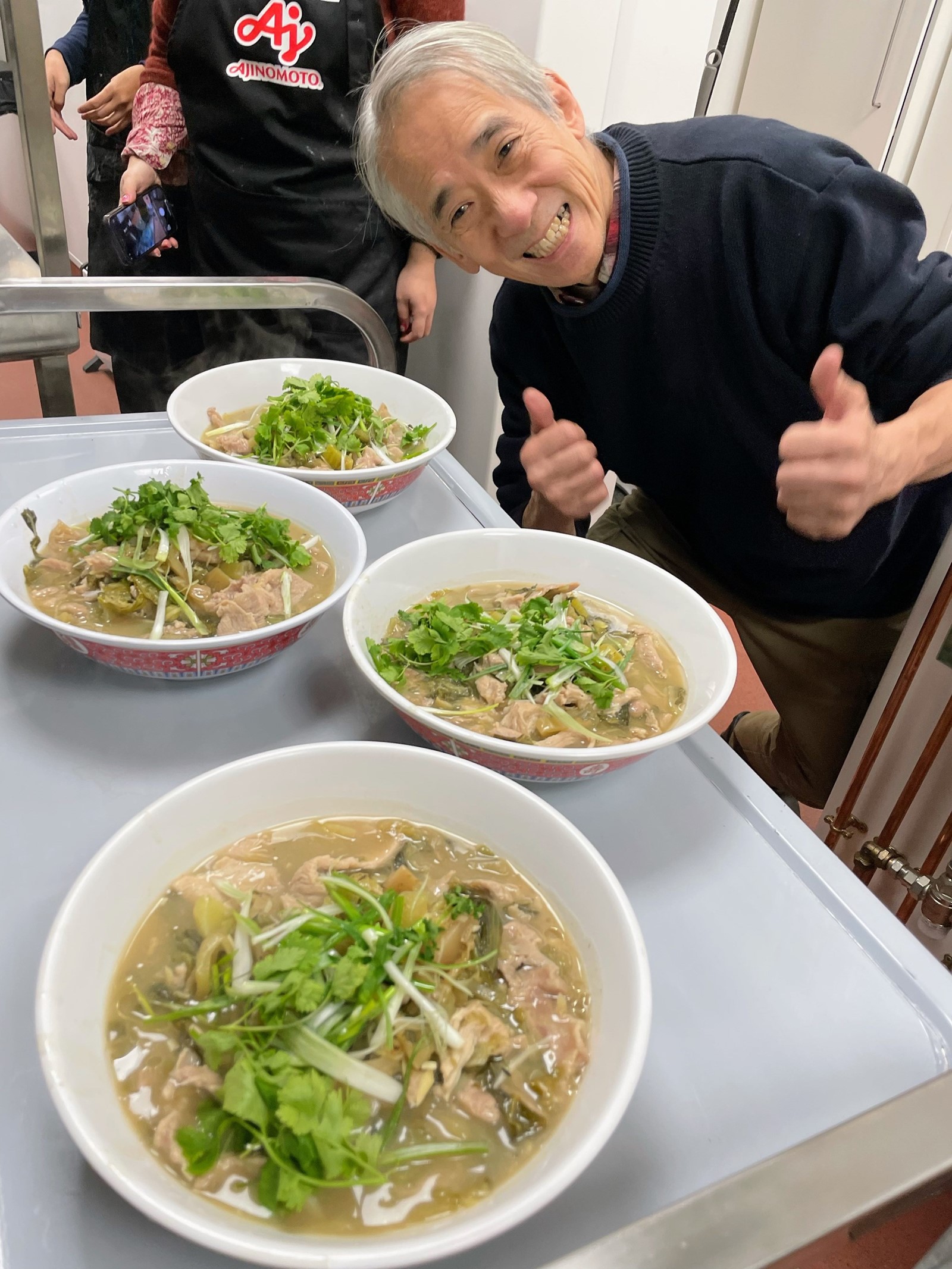
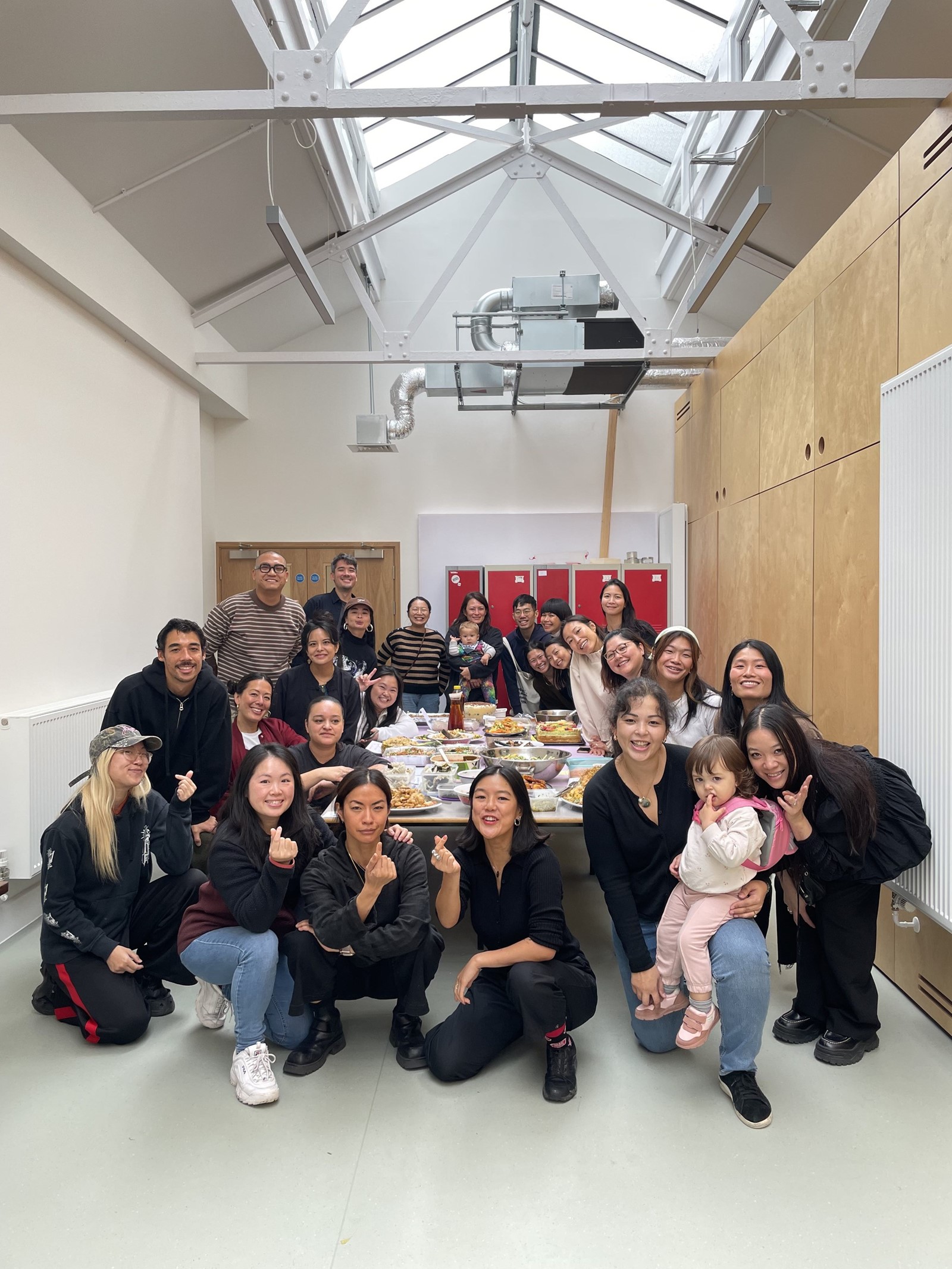
VC: So you stuck to your guns instead of selling out for the mainstream?
JL: I mean, I’d love for this book to sell out, but I wrote it exactly the way I wanted, and that was really important. I didn’t change anything, I didn’t compromise. I write for my audience, who are primarily diasporic people who can connect with what I’m saying. What I often hear from people is, “You verbalise what I feel but can’t put into words.” And I feel like that is a service in a way. There are in-jokes in the book that are just for Chinese people. I always, always prioritise my community. Many times, I have been approached by people who want to commission me to write recipes, and I’m like, “No, because I know what you want … you want dumplings.”
VC: What do you make of food media today?
JL: I will always have respect for people like Jonathan Nunn, who started Vittles. They pose the question: what is food writing? And then blow that notion apart. I can’t stand mainstream media. I can’t stand cookbooks. Sorry, but most cookbooks are really dull. There are some cookbooks which I think are really well written and weave in memoir, but without leaning into those expectations of writers of colour. Mainly Rambutan by Cynthia Shanmugalingam, and I also really enjoy Su Scott’s Korean cookbooks too.
An A-Z of Chinese Food (Recipes Not Included) by Jenny Lau is published by Renegade Books, and is out now.
This post was originally published on here







